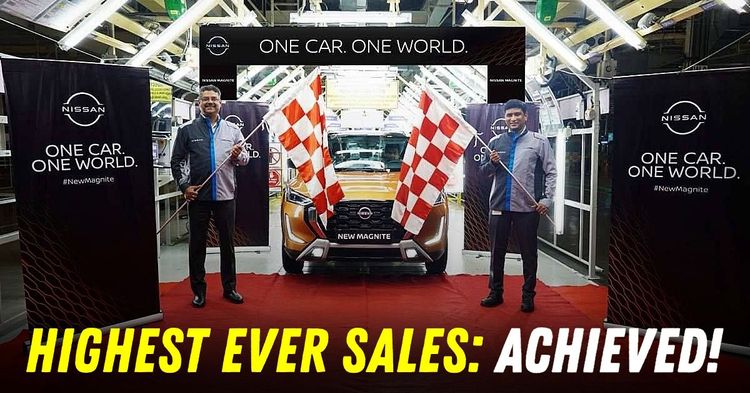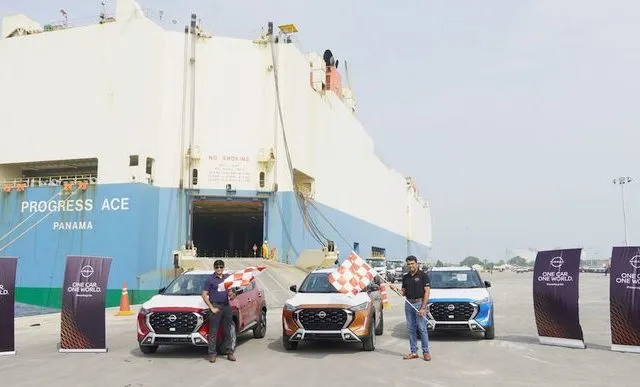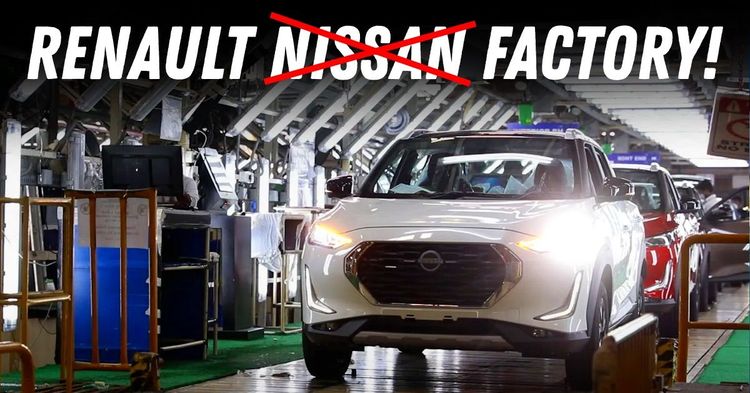Nissan's Indian Factory To Be Shut? Worrying New Report Deconstructed


Recent speculation about Nissan potentially halting production at its Indian facility has created unease in automotive circles, particularly following reports from Japanese media outlets suggesting India features on a list of markets under review for operational cuts.

Adding to the worries, Nissan's website says, 'No Comment'
At this time, we will not be providing further comments on this matter. We are committed to maintaining transparency with our stakeholders and will communicate any relevant updates as necessary.
However, a deeper analysis of the company's strategic moves, production metrics, and executive statements reveals a narrative starkly at odds with shutdown rumours, at least in so far as India is concerned. Far from retreating, Nissan appears to be doubling down on India as a critical hub for both domestic growth and global exports.

Nissan's global restructuring plan, announced in late 2024, outlined intentions to streamline operations by reducing manufacturing sites from 17 to 10 and trimming its workforce by 15% by 2027. While this rationalisation affects several markets, India occupies a distinct position in the automaker's strategy.
Frank Torres, head of Nissan India operations, has repeatedly emphasised the country's role as a profit generator rather than a financial liability. This contrasts sharply with markets like South Africa or Argentina, where legacy costs and low volumes pose persistent challenges.
The Chennai plant's evolving ownership structure further undermines closure theories. In March 2025, Renault acquired Nissan's 51% stake in their joint manufacturing venture, freeing up capital while securing continued production access through a contract manufacturing agreement. This strategic divestment allows Nissan to focus resources on product development and market expansion without bearing full operational liabilities.

India's emergence as Nissan's export powerhouse forms the bedrock of its sustainability argument. The introduction of left-hand-drive Magnite variants in early 2025 unlocked access to over 100 markets across Latin America, Africa, and Southeast Asia. Export volumes have surged from 50,000 units in 2023 to 99,000 units in 2024, accounting for 40% of the Chennai plant's total output. However, Nissan has even bigger plans in the offing.
This export push directly addresses the facility's chronic underutilisation. From operating at just 20% capacity in 2023, the plant now hovers near 40% utilisation, with plans to reach 80% (192,000 units) by 2026. The Magnite alone contributes 85% of current production, but Nissan's product pipeline suggests this over-reliance will soon dissipate.

Nissan's transition from a single-model brand to a diversified portfolio forms the centre piece of its India strategy. Later this year, the company will introduce a rebadged version of the Renault Triber MPV, badge-engineered specifically to minimise development costs. Sharing 92% of its components with existing models like the Magnite, this seven-seater requires minimal new supplier investment. Only homologation expenses are likely.
The real volume driver arrives in 2026 with the next-generation Terrano (or whatever the automaker chooses to name it new compact SUV), Nissan's iteration of the new Renault Duster. Unlike previous rebadging exercises, this model will launch within months of its Renault counterpart, signalling accelerated product planning cycles.

A five-seater configuration will debut first, followed by a seven-seater variant in late 2026. Both versions will cater to domestic and export markets, particularly Middle Eastern and African nations where Nissan's brand equity outweighs Renault's presence.
Complementing these launches, an electrified Magnite variant will enter the market, designed to meet India's stringent CAFE-III emissions norms effective from 2027. The Magnite Electric is touted to be the brand's most affordable EV.
Contrary to shutdown rumours, Nissan has been actively restructuring its Indian operations for efficiency gains. The transfer of 300 employees from Renault Nissan Technology & Business Centre India (RNTBCI) to Accenture and Genpact in early 2025 exemplifies this approach. By outsourcing non-core functions like finance and HR, the company aims to reduce operational costs by 18-22% while maintaining technical development capabilities.
Plant utilisation rates tell their own story. From producing 50,000 units annually in 2022, the Chennai facility manufactured 99,000 vehicles in 2024. With four new models slated for launch and export commitments expanding monthly, production is projected to reach 200,000 units by 2026. This would push utilisation to 83% of the plant's 240,000-unit capacity, achieving economies of scale that make continued operations financially viable.

Nissan's recent financial moves in India contradict exit speculation. The Renault joint venture stake sale generated immediate liquidity, while the contract manufacturing agreement ensures production continuity at predetermined costs. Simultaneously, the company has been expanding its Indian R&D workforce by 15% annually, focusing on localising global models and adapting exports for emerging markets.
The automaker's focus on high-margin exports provides another buffer against domestic market volatility. With Indian-made vehicles carrying 22-25% cost advantages over Japanese or European production bases, Nissan can competitively service price-sensitive markets. This strategic positioning becomes increasingly vital as the company withdraws from less profitable regions.

Every operational metric and strategic decision points toward Nissan deepening its India commitment rather than winding down. The product pipeline directly addresses current weaknesses like model concentration, while export growth provides insulation against domestic demand fluctuations. With plant utilisation trending upward and new models requiring minimal capital expenditure, the financial case for maintaining Indian operations strengthens annually.
While global headquarters may periodically review all manufacturing sites, India's combination of low production costs, engineering talent, and export potential makes it a key piece of Nissan's long-term strategy. Unless catastrophic market shifts occur, the Chennai plant appears destined not just for survival, but for rapid expansion as Nissan's Asian hub outside Japan.